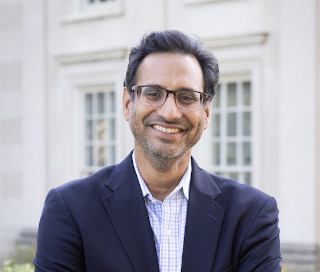RamaOnHealthcare September 28, 2021
In this Q&A, Dr. Kedar Mate discusses the importance of centering health equity in quality improvement work. In a recent poll of US-based health care professionals conducted by IHI, 82% of respondents agree that “there can be no progress on health care quality without progress on health equity.”
RamaOnHealthcare (ROH): Welcome, Dr. Mate. Thank you for participating in our thought leadership series. You’ve been President and CEO of the Institute for Healthcare Improvement (IHI) for more than a year now. Please tell us a bit about IHI’s mission, and how health equity factors into it?
Kedar Mate (KM): Thanks for providing me the opportunity to talk about IHI’s work. Our mission is to improve health and health care worldwide, and we believe that fulfilling our mission requires a deliberate focus on equity. We are committed to using the science of improvement to help remediate inequities in health care systems and communities across the globe.
Our mission is to improve health and health care worldwide, and we believe that fulfilling our mission requires a deliberate focus on equity.
ROH: IHI just released a report, “Health Equity: Prioritization, Perception, and Progress,” with key findings from an industry poll you conducted this summer. Tell us a bit about what you hoped to accomplish with this poll and report.
KM: It’s encouraging to see health equity receiving a lot more coverage in the news as of late, but what we haven’t seen a lot of is data. Data is the lifeblood of improvement efforts, so we conducted this poll to better understand current attitudes and perceptions surrounding health equity. We will use this data to inform our health equity work at IHI, and we hope others in the industry will do the same.
ROH: Your report findings indicate there has been a dramatic shift in the prioritization of health equity in the past two years, with a 33% increase in the number of health care leaders that identified health equity as one of their organization’s top three priorities. To what do you attribute this change?
KM: This is really a massive shift, and certainly a welcome one. It shows that the conversation has really changed around health equity. The COVID pandemic, combined with a series of repeated racists attacks, spurred a national conversation on racism in every system including health care. Our poll found that health equity is now just behind patient safety as the highest rated priority. And yet, much of the rest of poll shows how much uncertainty the field has about what to do to improve equity. That’s where we’re hoping IHI and our partners can play a role.
ROH: A data point that I found surprising was that 22% of respondents said, “My organization does not experience deep or persistent disparities related to characteristics such as race/ethnicity, language, sexual orientation or geographic location.” What advice do you have for health care leaders who hear this as they try to prioritize health equity?
KM: Frankly, anyone who thinks there aren’t disparities in their organization probably isn’t looking hard enough. Health care leaders will need to dig into their data and look for opportunities to improve. And data should be combined with coaching and support to help bring about true change. This isn’t about blaming people, it’s about creating a psychologically safe environment in which mistakes and biases can be acknowledged and then building better systems that can provide better health care to everyone.
This isn’t about blaming people, it’s about creating a psychologically safe environment in which mistakes and biases can be acknowledged and then building better systems that can provide better health care to everyone.
ROH: What role is IHI playing in efforts to achieve health equity?
KM: IHI strives for a future free of health inequities and is committing its tools, talents, and team to this essential human pursuit. We are doing so by working in collaboration with organizations, communities, and individuals to accelerate the elimination of inequities in health and health care access, treatment, and outcomes across our nation and the world.
IHI strives for a future free of health inequities and is committing its tools, talents, and team to this essential human pursuit.
We are actively ramping up our collaborative activities with health care delivery organizations, payers, and researchers and will have more to share about this in the coming months. This important work builds on our existing programs and resources, including IHI’s Pursuing Equity initiative and tools for addressing institutional racism, achieving community transformation, building trust and authentic engagement, and facing down denial and data challenges. All of these resources are freely available on our website: http://www.ihi.org/Topics/Health-Equity/Pages/default.aspx






